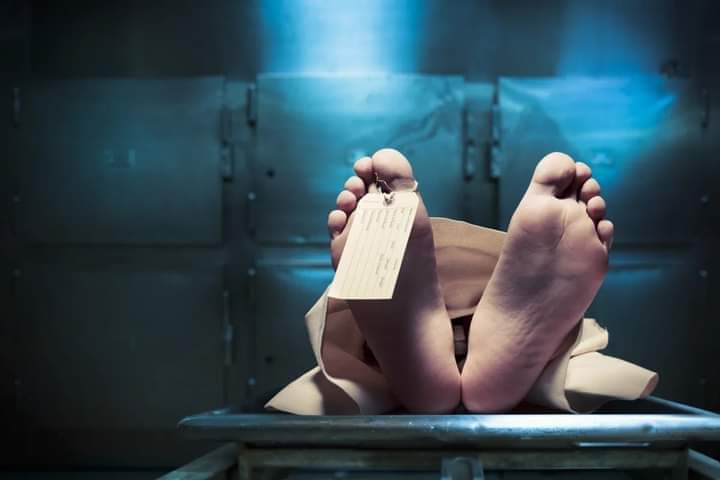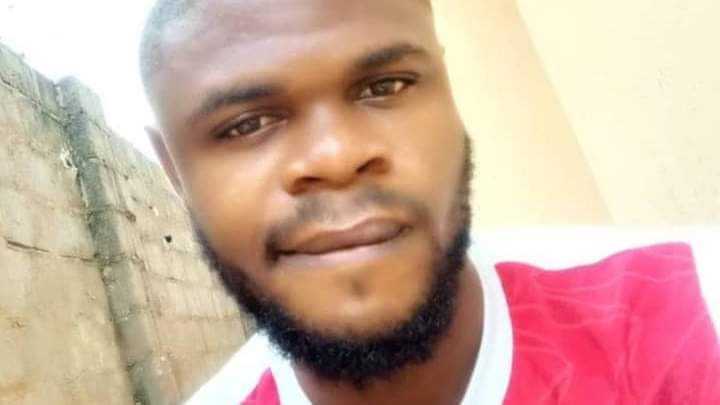MEDICAL STUDENT SHOCKED TO SEE HIS FRIEND’S CORPSE IN HIS ANATOMY CLASS

MEDICAL STUDENT SHOCKED TO SEE
HIS FRIEND’S CORPSE IN HIS ANATOMY CLASS
– He ran out in tears and had to be consoled by course mates.
– Enya Egbe found out that one corpse he had been asked to work on was a friend (BBC).

Enya Egbe, 26, scurried out of his Anatomy class at the University of Calabar in tears, after discovering that the corpse he had been asked to work on was that of a friend.
Egbe recalls that afternoon vividly and how he gathered with fellow students around three tables with a cadaver laid out on each. Minutes later, he screamed and fled the laboratory.
The body his group had been asked to dissect was that of Divine, his friend of more than seven years.
“We used to go clubbing together. There were two bullet holes on the right side of his chest,” Egbe says.
Oyifo Ana was one of the many students who ran out after Egbe; and found him weeping outside.
“Most of the cadavers we used in school had bullets in them. I felt so bad when I realised that some of the people may not be real criminals,” Ana says.
She added that one morning, she had seen a police van loaded with bloodied bodies at their medical school, which had a mortuary attached to it.
After Egbe fled the lab, he sent a message to Divine’s family who had been going to different police stations in search of their relative after he and three friends were arrested by security agents on their way back from a night out.
The family eventually reclaimed his body.
Mr Egbe’s shocking discovery highlighted both the lack of corpses available in Nigeria for medical students and what can happen to victims of police violence.
Between the 16th and 19th Centuries, different laws in the UK granted the bodies of executed criminals to medical schools – a punishment that also advanced the cause of science.
In Nigeria, a current law hands “unclaimed bodies” in government mortuaries to medical schools. The state can also appropriate bodies of executed criminals, though the last execution took place in 2007.
More than 90% of the cadavers used in Nigerian medical schools are “criminals killed by shooting”, according to a 2011 research in the medical journal ‘Clinical Anatomy’.
This means that these cadavers were suspects shot dead by security forces. Their estimated ages are between 20 and 40 years, 95% are male, and three out of four are from the lower socio-economic class.
“Nothing has changed 10 years later,” says Emeka Anyanwu, a Professor of Anatomy at the University of Nigeria, who co-authored the study.
It was only by chance after all that the family of Mr Egbe’s friend, Divine, was able to give him a proper burial.
Nigeria’s association of anatomists is now lobbying for a change in the law that will ensure mortuaries obtain full historical records of bodies donated to schools, and also family consent.
It will also set out ways to encourage people to donate their bodies to medical science.
“There will be a lot of education and a lot of advocacy so people can see that if I donate my body, it will be for the good of the society,” said the association’s head, Olugbenga Ayannuga.
Egbe was so traumatised after seeing his friend’s body that he abandoned his studies for weeks, because he imagined Divine standing by the door each time he tried to enter the anatomy classroom.
He ended up graduating a year after his classmates, and now works in a hospital lab in Delta State.
Divine’s family managed to get some of the police officers involved in his killing sacked.
Source – BBC

Comments are closed.